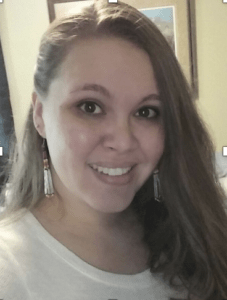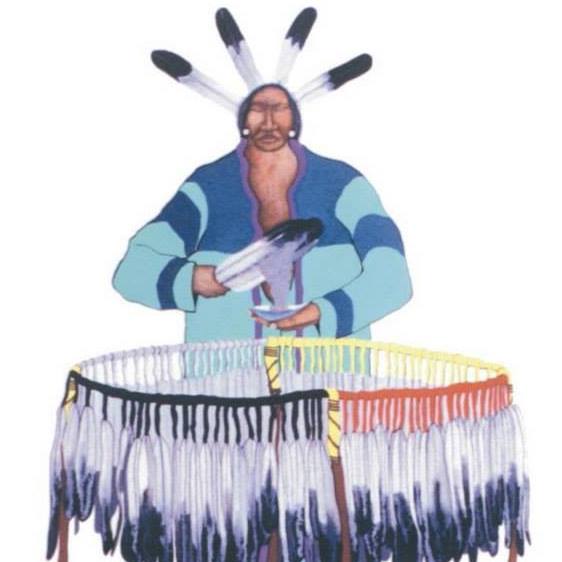The Association of Recovery in Higher Education’s spotlight series focuses on collegiate recovery programs, and students, as well as shining a light on different pathways of recovery. This week we are featuring the Wellbriety Movement.
For those of you who don’t know, White Bison is a Native American operated 501(c)3 nonprofit organization dedicated to creating and sustaining a grassroots Wellbriety Movement that provides culturally based healing to the next seven generations of Indigenous People.
White Bison is a proud facilitator of the Wellbriety Movement. Wellbriety means to be sober and well. Wellbriety teaches that we must find sobriety from addictions to alcohol and other drugs and recover from the harmful effects of drugs and alcohol on individuals, families and whole communities. The “Well” part of Wellbriety is the inspiration to go on beyond sobriety and recovery, committing to a life of wellness and healing every day. White Bison disseminates culturally based principles, values, and teachings to support healthy community development and servant leadership, and to support healing from alcohol, substance misuse, co-occurring disorders, and intergenerational trauma. That said, many non-native people use White Bison’s healing resources, attend their learning circles, and volunteer their services.
We spoke to Kateri Coyhis, Executive Director of White Bison, Inc.
ARHE: Tell me about the kind of people who seek recovery support through Wellbriety.
Kateri: Wellbriety is a term that means to be sober and well. It means to live a sober life that is balanced emotionally, mentally, physically, and spiritually. It is about whole-person wellness.
The Wellbriety Movement is all-inclusive. Just like any fellowship, the people who seek recovery support through The Wellbriety Movement are people who have experienced trauma and been impacted by addiction on some level. We serve people from all walks of life and that are in different stages of their recovery journey.
We have programs available for all age groups as well.
ARHE: Can anyone attend meetings?
Kateri: Wellbriety takes a culturally based approach, but we invite anyone who could benefit from this approach to participate. It doesn’t matter what your earth suit looks like.
ARHE: How does the Wellbriety program differ from, say, a 12-step program of recovery?
Kateri: We have a variety of different programs that include adult treatment and recovery, youth treatment and recovery, youth prevention, whole family wellness, health fatherhood, healthy motherhood, re-entry, and programs that address healing from grief and trauma.
One of our programs is called The Medicine Wheel & 12 Steps. It is a culturally based adaptation of the 12 steps and weaves in cultural knowledge and teachings into the 12-step process.
ARHE: How does the Wellbriety program help individuals to overcome trauma — both suffered directly and generationally? How can we use elements of the program to be more trauma informed when interacting with our peers in recovery?
Kateri: In Native American communities, the traditional culture has been the main source for learning principles, laws, and values that guide individuals on how to live within their communities. These values guide each person through stages of their lives, and what their role is within the family structure as well as within the community.
Prior to European contact, Native Americans established an effective system for providing this education for their children. Each tribe had its own set of spiritual beliefs that were incorporated into every aspect of daily life through storytelling, ceremonies, songs, and language. Native American boarding schools were introduced in 1879 and thus began an era of forced assimilation, and a devastating loss of cultural identity, language, and loss of the family structure. The devastating effects of intergenerational trauma began with Native American children at boarding schools and continue to impact communities today.
In our years of studying research by people well versed in the field, such as Maria Yellowhorse Braveheart and Eduardo Duran, we have found that every issue that we are seeing in our communities today including addiction, family violence, suicides, sexual abuse, etc. can be traced back to the time of the boarding schools. These issues are not underlying causes; they are symptoms of something deeper — intergenerational and historical trauma. This trauma is a root cause of what we are seeing today and has to be addressed. We have also found that once trauma is introduced, it changes the epigenetic discourse of the DNA and is literally passed down to following generations.
The Wellbriety movement has developed programs that address these root causes of trauma, both intergenerational and trauma that occurred directly. We are finding that those in the recovery community typically have suffered some kind of direct trauma in their early childhood. We have a program called Mending Broken Hearts. The purpose of this program is to develop the capacity of the individual or community to heal from unresolved grief and trauma. It helps people to recognize what grief is, how we process grief, what masks we wear to deal with grief and trauma, and most importantly how to create intergenerational healing. This is a very foundational program and can help others be more trauma-informed by understanding how trauma impacts individuals and communities at the root level. People who go through this program have to do the work themselves first, because you can’t give away what you don’t have.
In 2009, White Bison traveled to current and former boarding schools nationwide and gave boarding school survivors an opportunity to share their story of what happened to them. The goals of the journey were to raise awareness that these schools existed and how it is impacting individuals and communities today, and to promote forgiveness and healing. We put together a documentary that explains the impact of intergenerational and historical trauma. I have provided a link to The Wellbriety Movement: Journey of Forgiveness below. Not only is it available on YouTube, but if anyone emails us their address at info@whitebison.org, we will gladly provide a DVD free of charge.
ARHE: What words of encouragement would you offer someone seeking support from a recovery program?
Kateri: Recovery is something that is realistically attainable for anyone who is willing to do the work and take the steps to live a better life. It’s not always easy, but it is always worth it! No matter how far down the path of regret and shame and anger that you have ventured, you can always turn around and start healing. Recovery works!
ARHE: How can people find out more information about Wellbriety?
Kateri: The easiest way to learn more about White Bison and the Wellbriety movement is to visit our website at www.whitebison.org, email us at info@whitebison.org, or call our office directly at 719-548-1000. Thanks!

